“I’m originally from London, England, and lived there for 35 years. I have been an entrepreneur since I was 11 years old. I quit school at 16. Going to college and university was never on my radar and I’ve never regretted that. I’m not saying that’s the path that everybody should take, but if you have the aptitude for it, you want to be your own boss, feel that that’s your path in life, and if you’re passionate about something, then you’re not working. That’s what I’ve been told and that’s my mantra in life.
I had set up a website that was selling old-fashioned soaps, and it was a natural thing for people to start asking for washboards, so I set up a washboard distribution company in the UK but needed washboards. My mom found the Columbus Washboard Company and we decided to make a phone call.
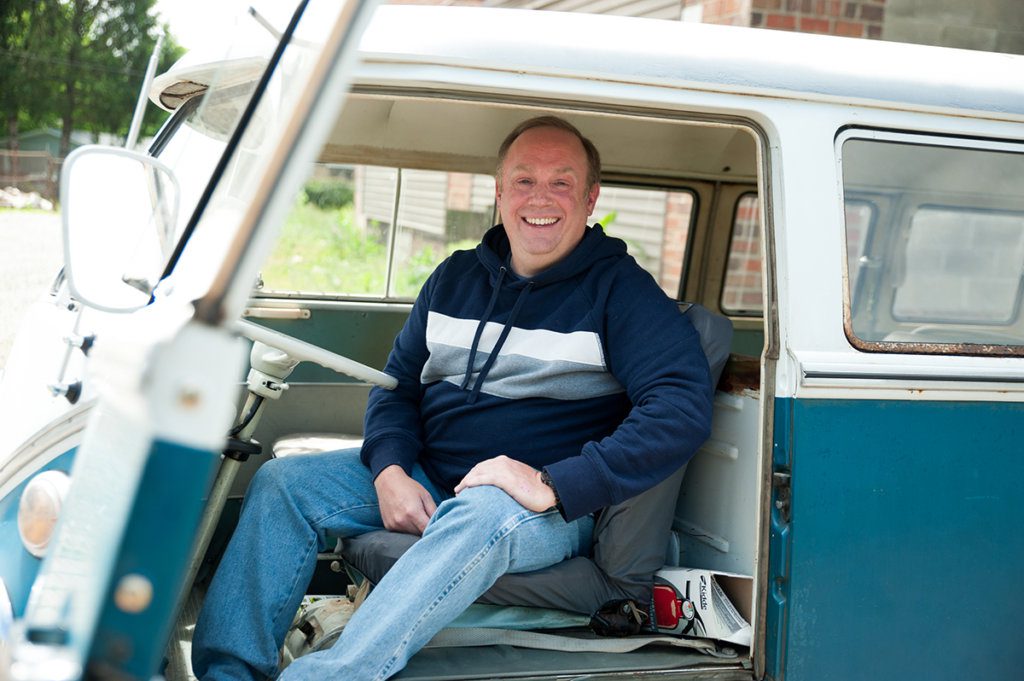
I got through to a lovely lady called Jackie, who was one of the owners and still is. It turned out that she was from New Zealand so there was a lot of synergy there. Kiwi culture is very, very similar to English culture: same sort of food, same lifestyle, everything.
I said to her, ‘I want to buy some of these washboards’, and she said, ‘Look, you’re going to have to buy at least three or four dozen, because otherwise, it’s not worth it.’ I thought, ‘I’m just going to buy these, and if the worst comes to the worst, everybody in my family gets these washboards as Christmas and birthday presents for the next 20 years.’
I put them on my website, and before they even got to Heathrow, I’d sold them. It was absolutely mental and we became one of their biggest customers. It was just amazing how much we were selling these things. Eventually, I bought into the company because having come also from distribution, I knew that I wanted a guaranteed route to market.
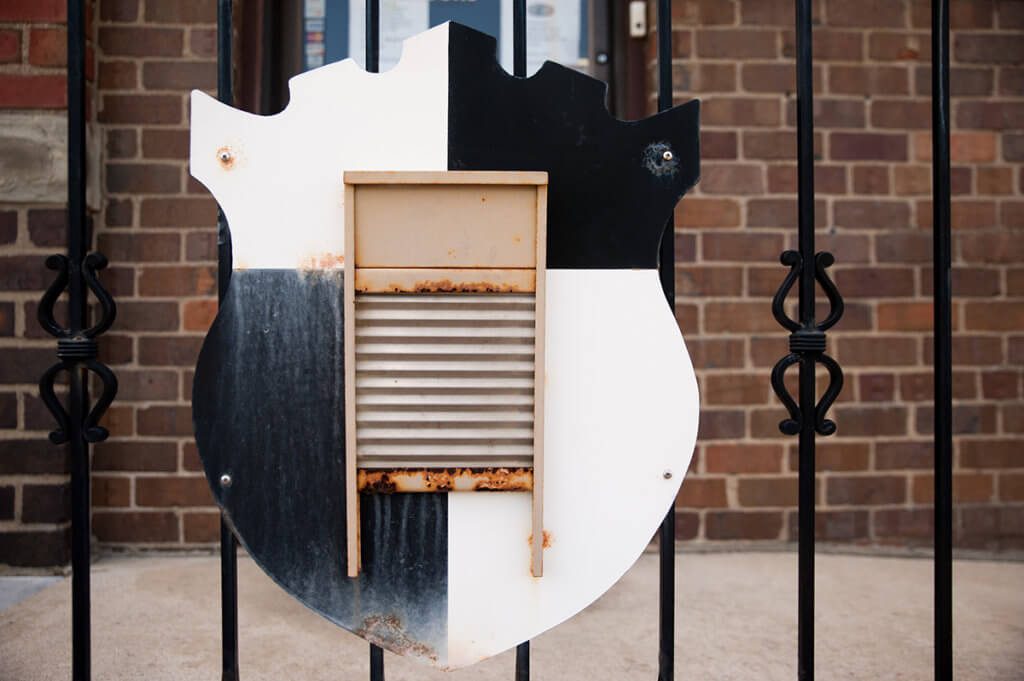
They asked me to come over to the Washboard Festival to have a look and see what Logan was like. I didn’t know what ‘Appalachian’ was. I’d never even heard of the word.
When I finally got to Logan, I remember it was really hot. Bright sun. I remember getting out of the car and getting hit by an overwhelming waft of heat.
And I thought, ‘I love it here.’”
“I’m a child of the 80s. Best decade ever. I had a great time. I grew up in a pretty typical suburb south of London, England. At school, I didn’t realize that we were technically wearing Harry Potter-style uniforms—it was just completely normal to me. They used to check that your shoes were polished and everything else. On reflection now, it’s quite funny thinking about some of those things. A lot of things have changed over the last 20 or 30 years.
The difference being is that obviously in England, they drive on the other side of the road, and everybody drives manual transmission.
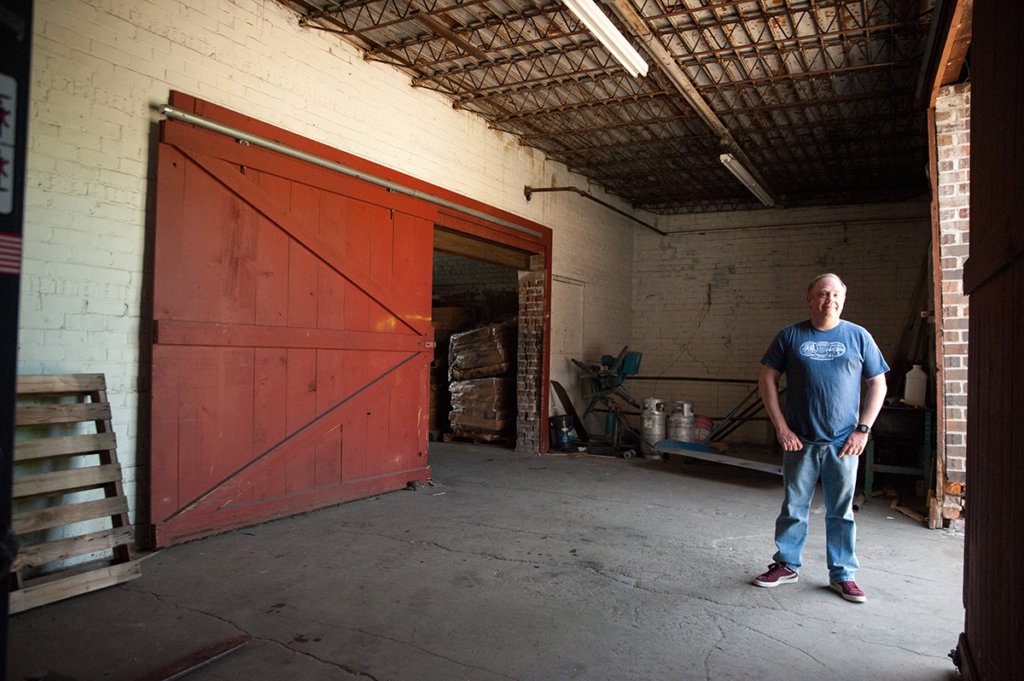
It was the first time that I’d actually driven in the US. I got to Columbus airport and I sat in this Pontiac G6, and the guy from the company tapped on the window and he said, ‘Are you okay?’ I said, ‘I don’t know how to drive this.’ He goes, ‘Have you ever driven an automatic before?’ I told him ‘no’, so he gave me a little rundown and it sounded nice and easy.
Then I got onto the road.
It was just absolutely awful having to drive on the other side of the road with a steering wheel on the other side of the car. I drove and drove and then I thought that I was close to Logan, because the traffic in Columbus is less than what I was used to.
The main thing that I really loved about coming to Logan was the fact that there was this real sense of community.
Wrong. I ended up in Polaris, and decided I really don’t know where I was going. The signs are all different and people are driving differently. I just don’t understand this. I got to Polaris. managed to find a Radio Shack, got myself a GPS, and plugged it in.
And sure enough, it told me that I was 45 minutes away.
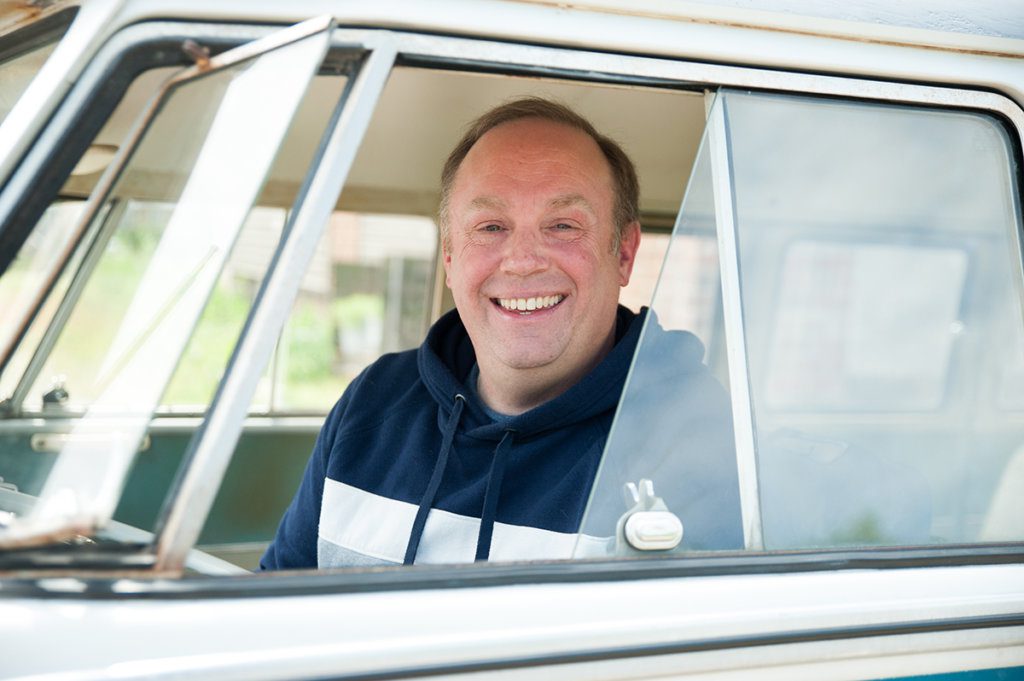
I made it to Logan and parked up by the feed mill because I had no clue where I needed to go from there. I figured it out when I saw the world’s largest washboard on the side of the building.
Within a few hours, I’d been introduced to a bunch of people and they were all friendly, and they were all genuine. They wanted me to do well. Everybody here has been encouraging. Everybody here has been supportive.
They say the culture over there in England is slightly different, but it’s also very, very similar. When I came over here, I saw there was a lot of synergy with what I’d already experienced throughout my life. And the main thing that I really loved about coming to Logan was the fact that there was this real sense of community. There was a sense of community over in the UK, but certainly not as sort of entrenched as it is over here. That’s what drew me here and make me never want to leave.”
“They were welcoming and so pleased that I was there. I just absolutely fell head over heels with Logan, and it’s been a love affair ever since. I’m actually now a city councilor. I’m on plenty of boards that are throughout the town. I’ve been on the Chamber of Commerce. I’m the Vice President of the ham radio club of all things! That was one thing I wanted to do. I always wanted to be a ham radio operator, but only got the opportunity over here.
I could have been that guy that went and bought myself a couple of acres out on the edge of town and just led my own life. But when I got here, it was the community that was the initial appeal.
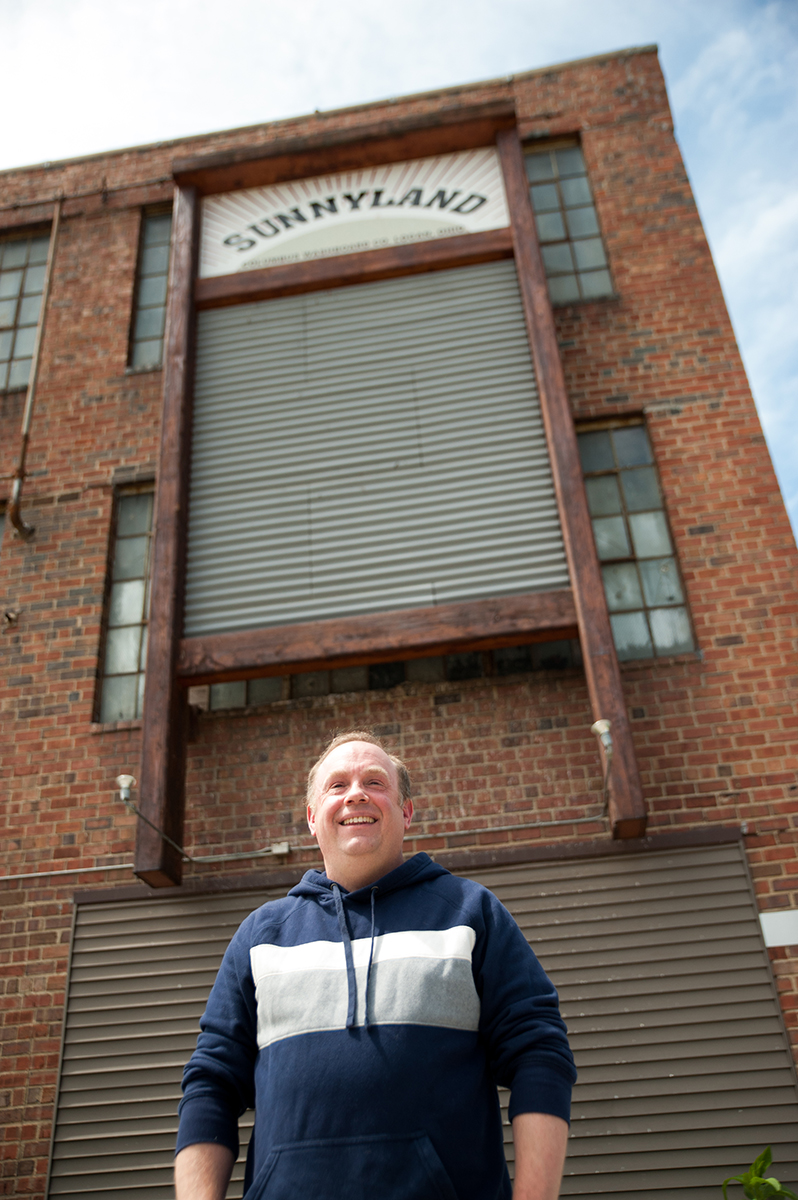
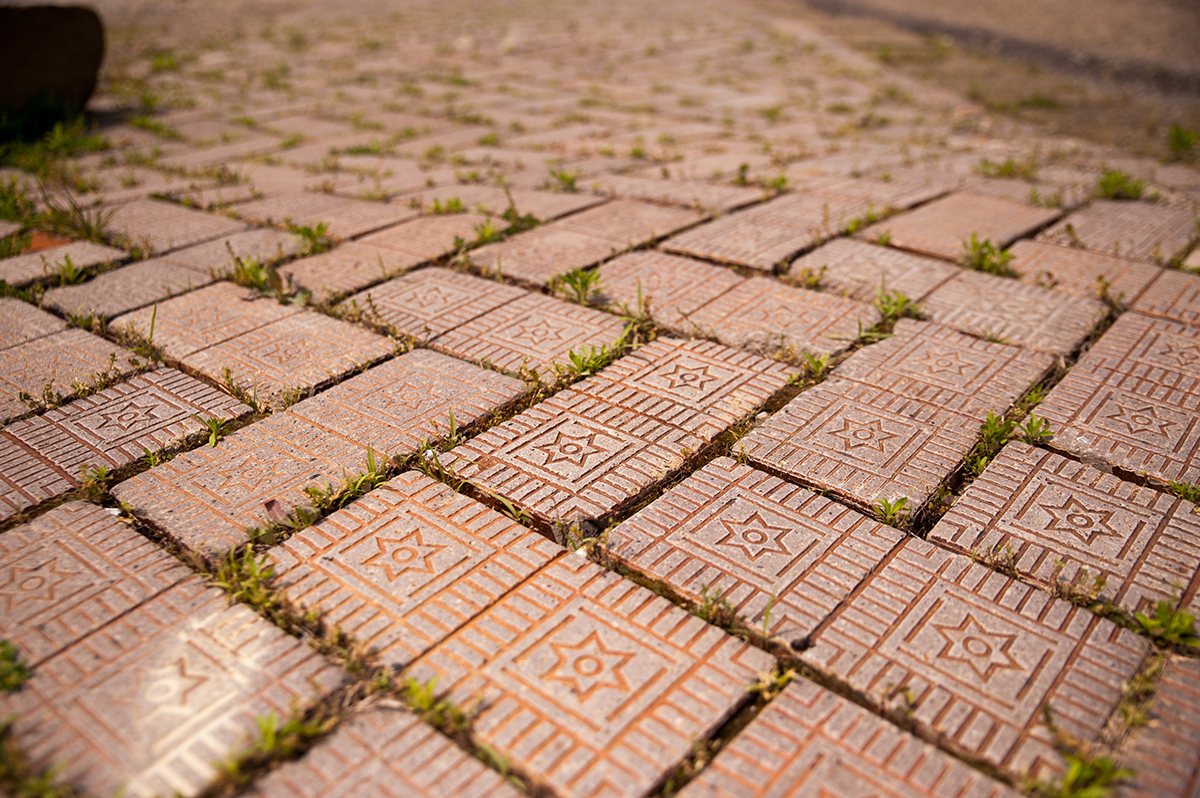
When I got my first house, it was right in the middle of the nasty weather and my furnace quit. I found out it was a 1964 Sears and Roebuck furnace. There was no way that was going to get repaired. One of my friends took me to the bank because when you move countries, you also lose your credit score. They took me into the bank and co-signed on me. I worked so hard to get that paid off within 18 months because I just didn’t want that sort of thing around my neck. That’s just one example of many of what this community is willing to do for each other.
I’ll tell you one little story, which is still very close to my heart. I have a very good friend Teresa, who actually is the general manager of the local radio station.
When people actually get together and make things happen, my goodness, they make things happen!
Teresa was talking to me many years ago about accents and stuff. I said, ‘When I first moved here, I so desperately tried to drop my accent.’ In actual fact, I did to a degree. I said, ‘Because of my South London drawl, nobody would understand.’ It’s a real Cockney London. I had to change it more towards what they would define as BBC English, where you’re pronouncing your words more clearly.
She said, ‘We love your accent, James!’
“The only thing, Theresa, is that I want so desperately to fit in. I just want to feel that I’m part of the community.’
She said, ‘What do you mean, James? You’re one of us.’
That meant more to me than anything else I’ve ever heard.
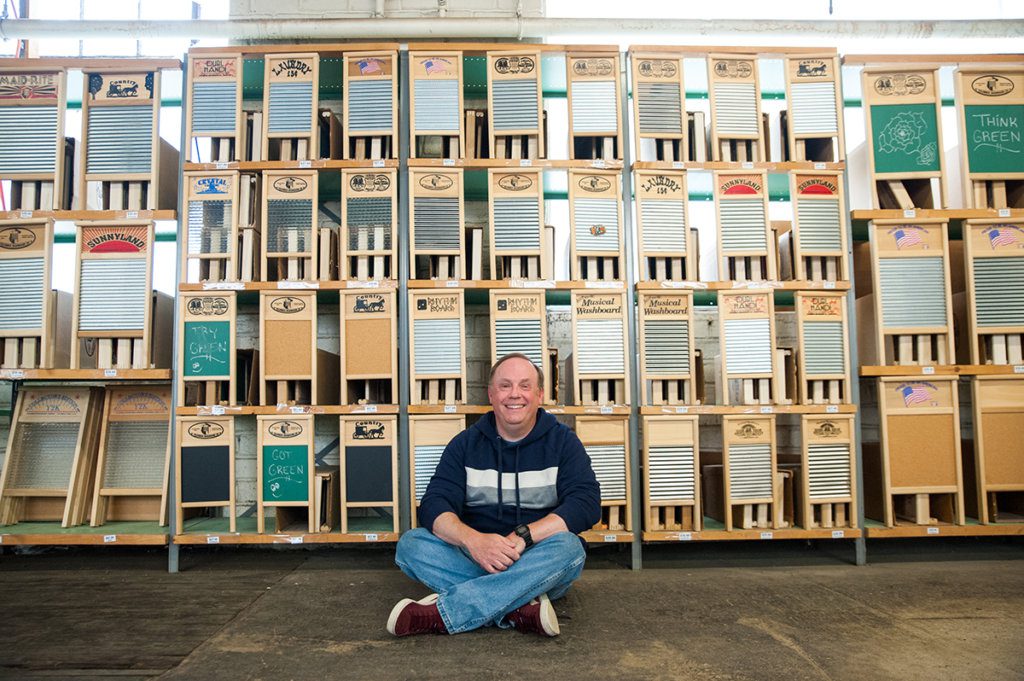
Diversity is great. I love the fact that everybody’s different. I love the fact that people bring different things to the table. But what I do emphasize is that we all work as a community.
When people actually get together and make things happen, my goodness, they make things happen! I know that it sounds like a broken record, but it is our community.
I can prove that. Just come downtown, and I’ll show you.”
“The Washboard Company is the original Columbus Washboard Company that started in 1895 in Columbus, Ohio. Ironically, it was started by the Martin family, absolutely no relation to me, just a common name.
It was Frederick Martin who began the company. He started off by making washboards in his own home, and then eventually started to get more demand and built the factory. The factory I believe fell into the river at some point and they moved it to Grandview, Ohio, which is pretty much central Columbus. They were there from 1895 until 1999.
They had many brands of washboards or different logos and different rubbing surfaces and everything else. Of course, because of washing machines, the market started dwindling significantly from the 1950s until it became a real sort of pastiche of itself, probably by the ‘80s.
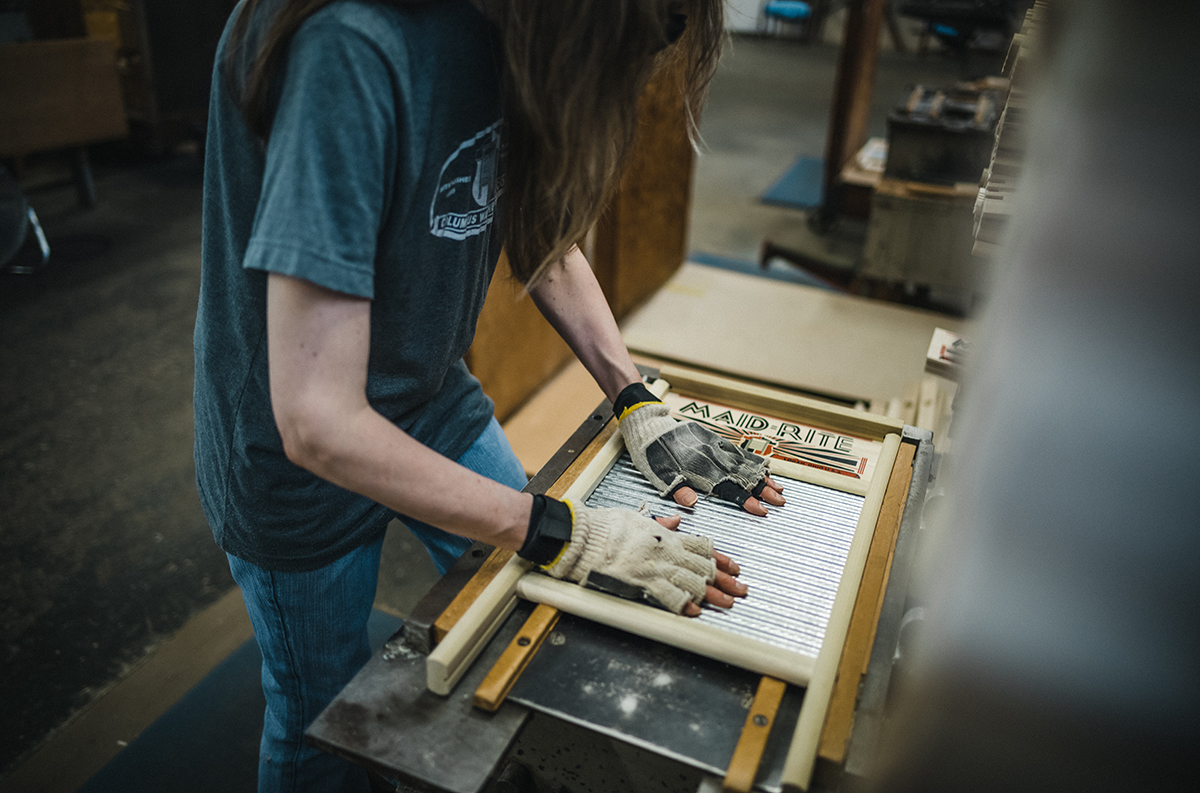
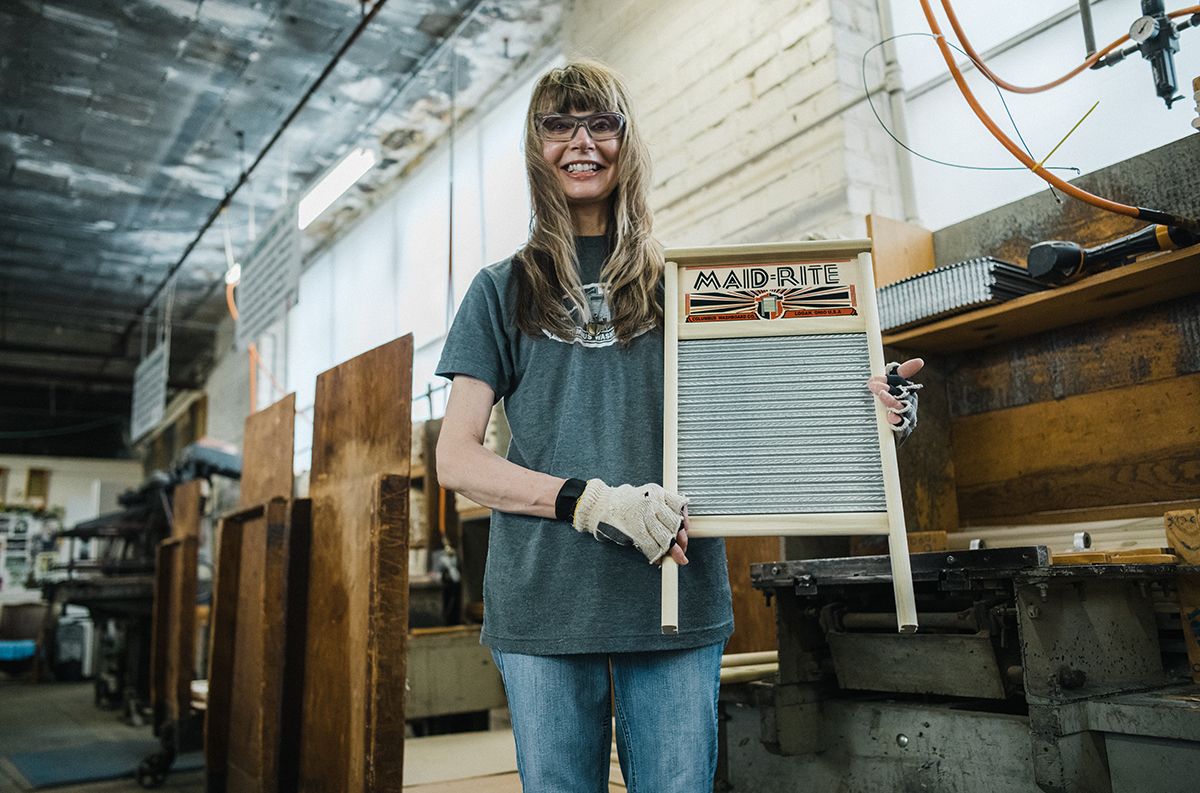
In 1999, the company was down to the last generation of the Martin family. They put an article in the Columbus Dispatch, saying that this was the last week to purchase an American-made washboard.
My business partners and a gentleman from Columbus picked up on that. They went to their factory to have a look and negotiated to buy the company, including all of the equipment, but not the building. In the course of a short period of time, they moved all the original equipment to a former shoe factory where it currently is in downtown Logan. My business partners had already purchased the building and they got everything up and running again within a few months.
They still had inventory from the old factory; they technically have not stopped selling washboards since 1895. They are genuine washboards–you can use them. We send them over to the military, especially when they’re in remote locations because if they don’t have electricity, how else are they going to clean up their fatigues?
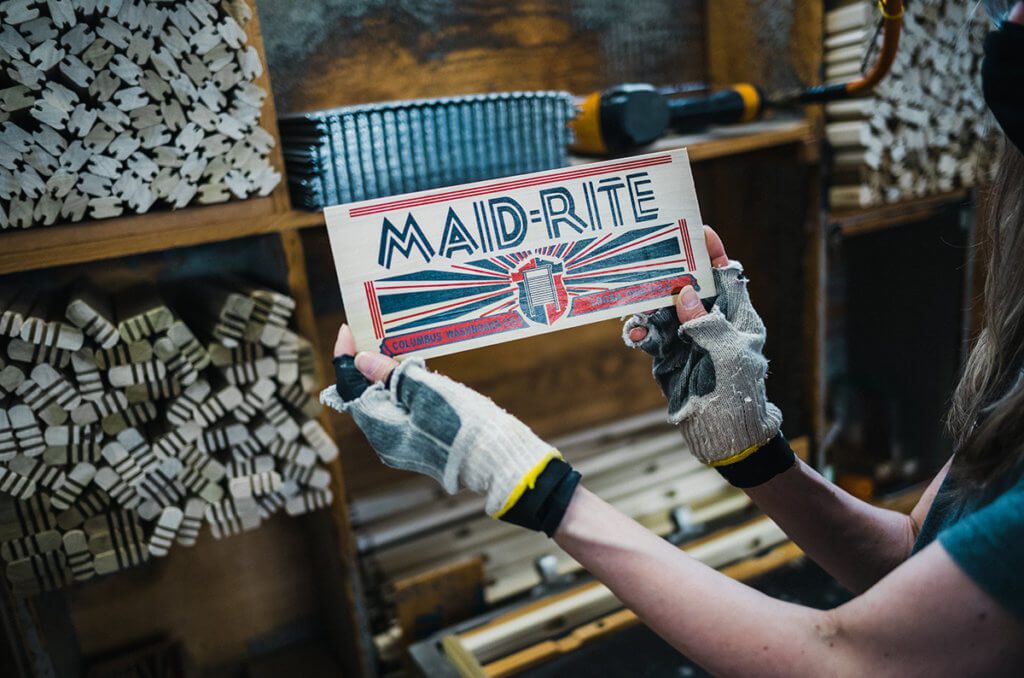
They get used for decoration as well. They’re used as musical instruments. The Beatles actually started off as a washboard band when they were called The Quarrymen back in the 50s. I say that fact every single time I do a tour. They are genuine washboards, and that’s what I like about it because there are so many companies that are pumping stuff out now that it looks old-fashioned, but it isn’t. Either they just put a different logo on it or something. Or it’s something that was practical, which now you just stick up on the wall and that’s it.
We use the same manufacturing techniques with a couple of modifications obviously for the modern day. We still make the finger joints, we still nail assemble, and there’s no glue or anything like that used in them. I’m very proud of the fact that 1999 was a long time ago now and we’re still there pumping away.”
“We had an absolutely bumpy year two years ago due to COVID. We closed the factory to the public because we couldn’t have people coming in. But our production team went gangbusters because we had such a demand from all of the big cities where people were just frightened to go to a laundromat. People laugh about the washboard company, and, yes, it’s kind of funny, it’s kind of quirky. But every so often we prove that we’re actually still relevant in 2021 and beyond. It keeps people employed, it keeps our history alive. It’s wonderful that in 1999, all of that equipment could have just been melted down. And in actual fact, there it is, still being used.
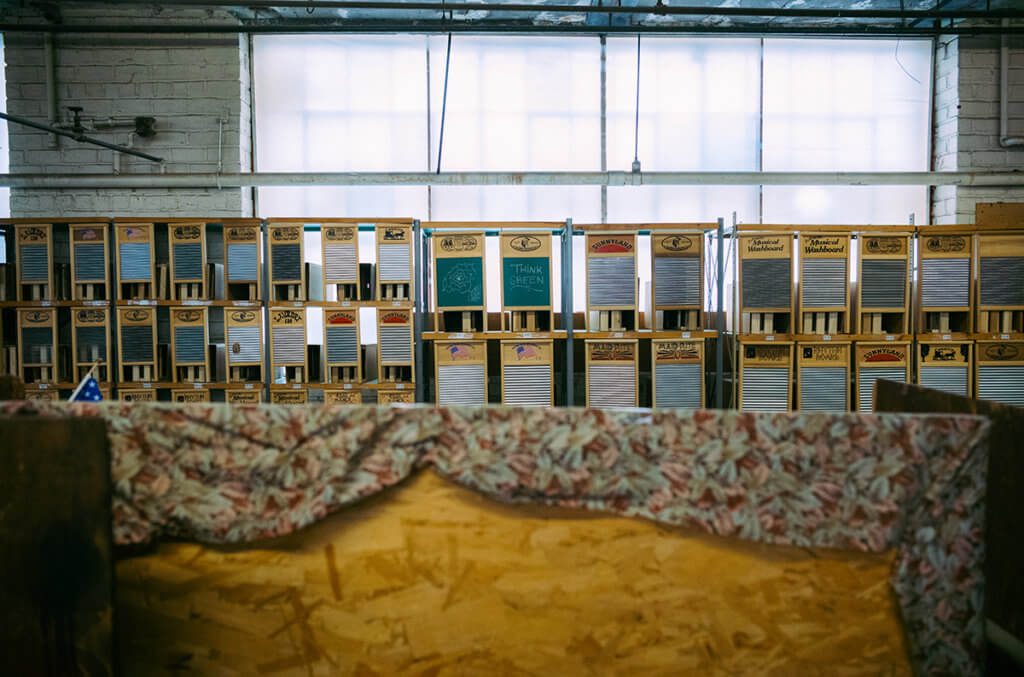
There are three people that work in the factory. I would say there were probably upwards of 20,000 washboards that were shipped out. Now, that’s nothing compared to 1941, which would have been 1.4 million. Sometimes people ask us to make custom things, and we just can’t do that. What we can do is if somebody is having, say, a big reunion or whatever, we can actually get the screen printers to do something on our brand boards. Other than that, the actual assembly is pretty much set in stone how it is. It is a genuine factory, it’s a real novelty. We’ve got lots of history in there.
That sort of history–you can bet that’s awesome. We’re keeping a piece of history alive.
We’ve had washboards that have been donated by folks when they come in. I remember about six or seven years ago, somebody came in with a washboard from their grandparents, which they didn’t want, they wanted to donate to us. It was a 1941 V for Victory washboard which we have on proud display. And the thing that gave it away was that there was only one color ink because they had restrictions then. The actual rubbing surface itself was made from wood, as opposed to metal because there was a metal shortage.
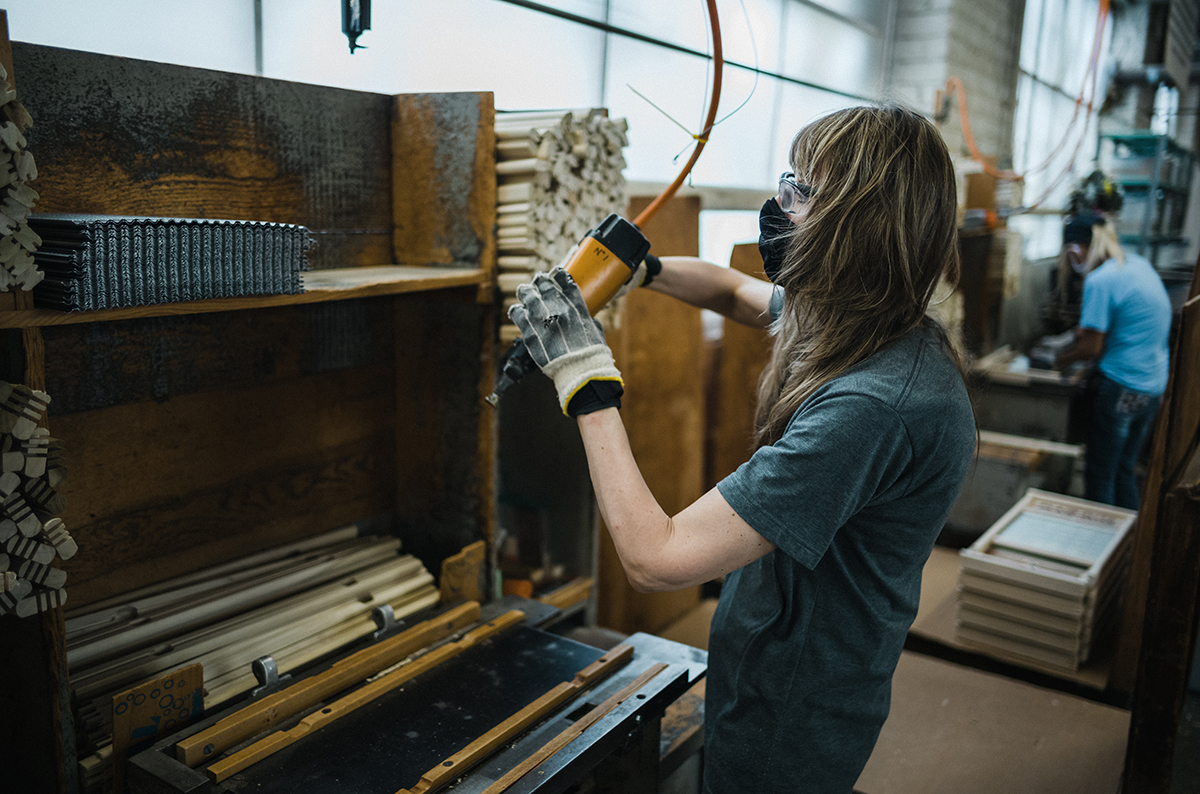
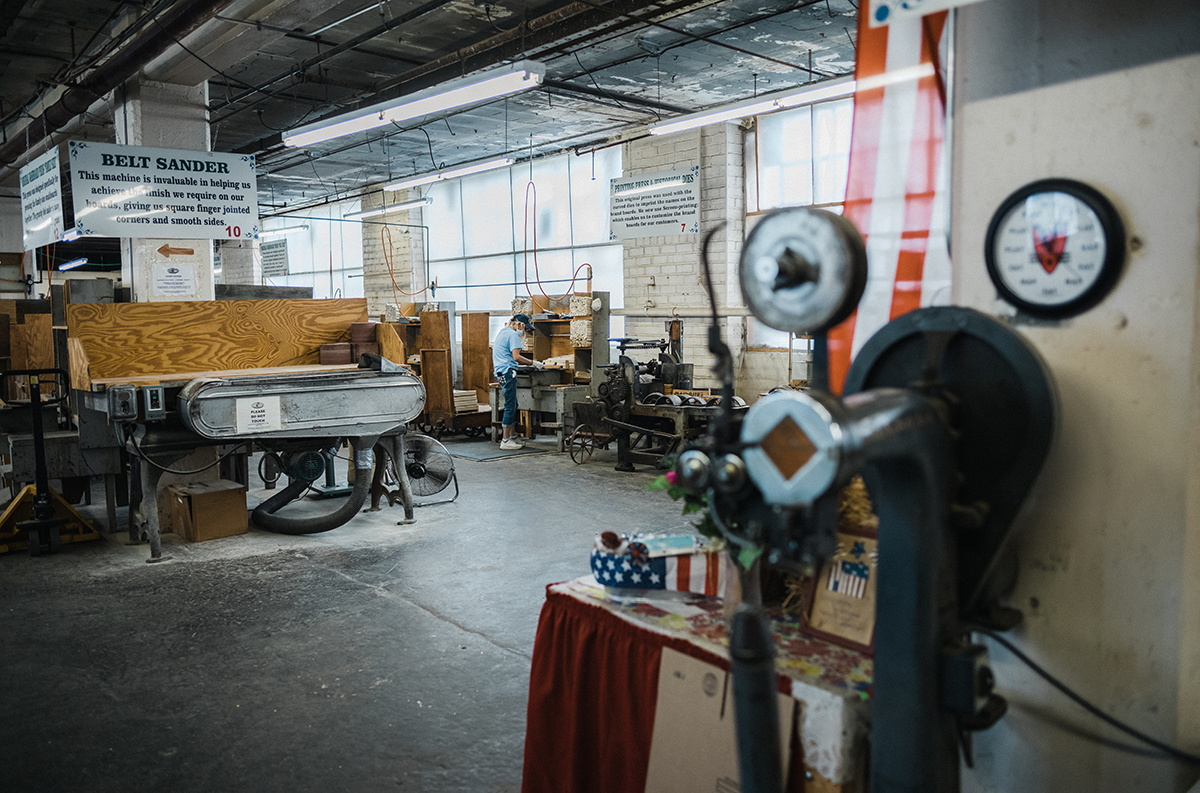
We’re also doing tours of the washboard factory which you can go in at your own leisure. There’s a guy in there who was super eccentric called Bill Bailey, Uncle Willie. He plays washboards and various other instruments that he’s invented.
That sort of history–you can bet that’s awesome. We’re keeping a piece of history alive. I’m very much into that.”
“I was born in one of the biggest cities in the world, and yet the most comfortable I feel is here in Logan, Ohio. When you’re in a big city, you’re a very small fish in a big pond. When you’re in a rural community, you can be a big fish in a small pond. It really depends on what you want in life. I’ve got lots and lots of friends who live in central Columbus, and they absolutely love it. I enjoy going to Columbus, but I also enjoy going back home too. For myself, I would rather live somewhere that’s slower paced that is easier to be part of the community.
I’m an owner of the washboard company, but my current job is involved very heavily in the community with the Hocking Hills Tourism Association. It’s predominantly about all of our outdoor activities and the Hocking Hills State Park. Part of my remit is that as the Community Communications Director at HTA, I’m trying to find those synergies and trying to find ways to encourage the downtown to be revitalized, and for people to actually go down and actually appreciate it.
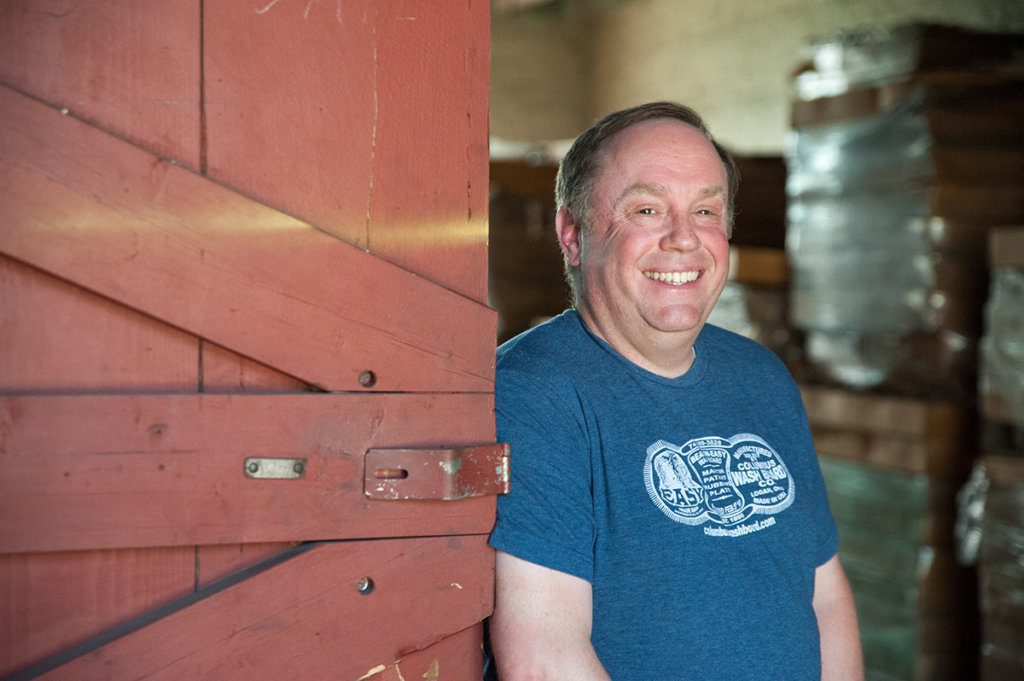
I’m very, very passionate about Hocking County and the city of Logan. I love the fact that that washboard factory still exists and there’s no chance of it closing, certainly within the next 5-10 years.
The good thing with the city of Logan is – and it’s just purely by luck more than anything else – that there were not many old buildings pulled down. They were just left. And so that’s a good thing because if you pull down a building and replace it, you’re never going to get that old 1800s building back. Who wants to go into a falling apart old town?
If you have a nasty-looking downtown, then you’ve lost the center of the whole community. I honestly never felt that. When I moved here, 10 years ago, there was no reason to go downtown. Back in the ‘90s, it started dying just like every other downtown. There was a mass exodus of businesses that came out. There were properties that have been empty for years and years and years.
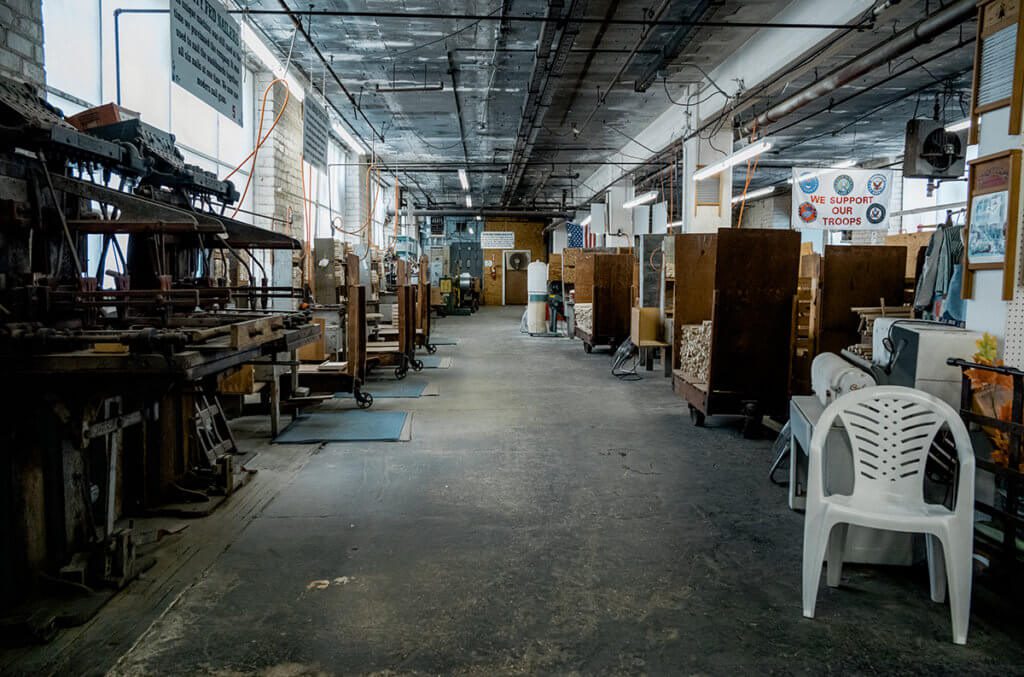
Then by the ‘80s, everybody just ignored them because of course the multiplexes were open. Because they let them die, the town died with it. Everybody was pushed out into the biggest cities. That’s because there probably wasn’t as much opportunity. In fact, there definitely wasn’t as much opportunity. Back in the ‘80s and the ‘90s, and maybe even the naughties, businesses were still dying here. In the ‘90s, we still had a big Goodyear plant, we had a big General Electric plant, which now is nothing compared to what it was. For manufacturing jobs, they were not there so much.
If you live in a big city, you have to earn a big city salary. You can very easily do remote working at home now. We have fiber downtown, that’s no barrier here whatsoever.”
“The first mistake that people make when they try and revitalize a town is to try and turn it into something they think tourists are going to want. The tourists come and go, and locals stay here all year.
Sure, we could create something like Disneyland by just throwing a bunch of money at it. But to create something that’s authentic, it has to be something that the locals want and need. I don’t want to create a pastiche version of what downtown Logan used to be.
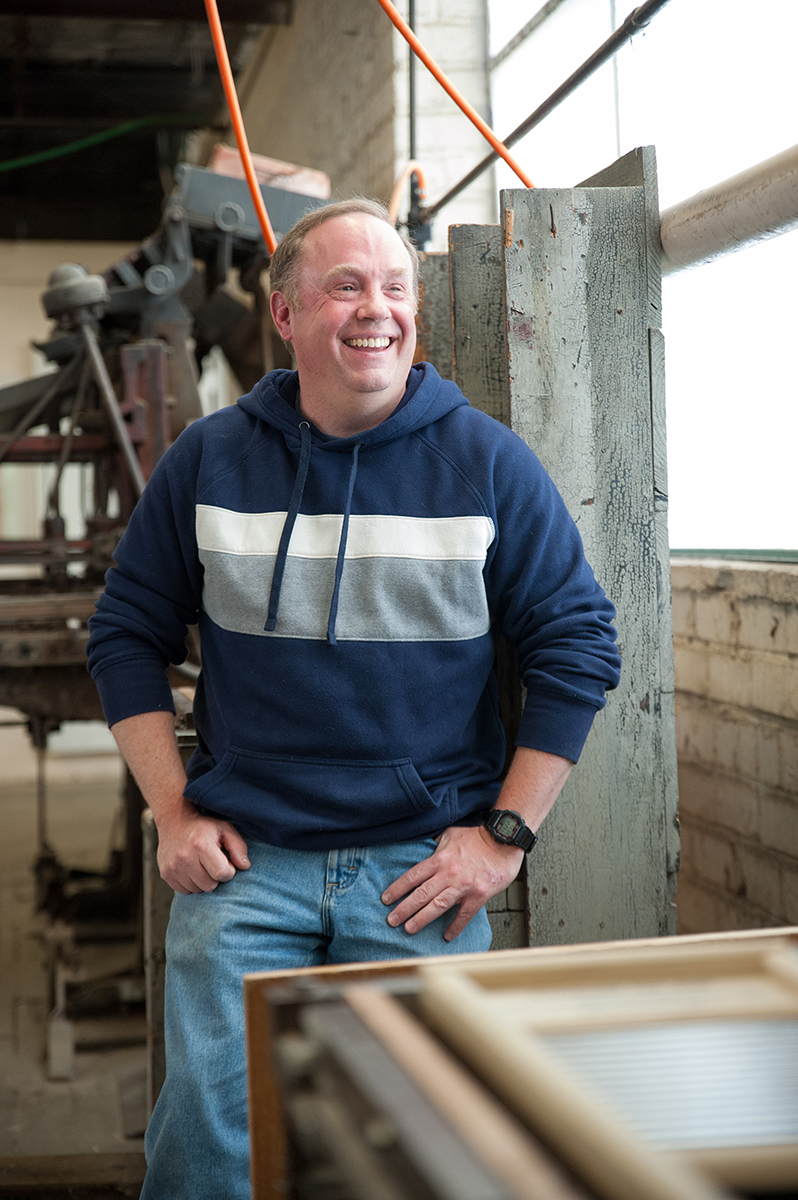
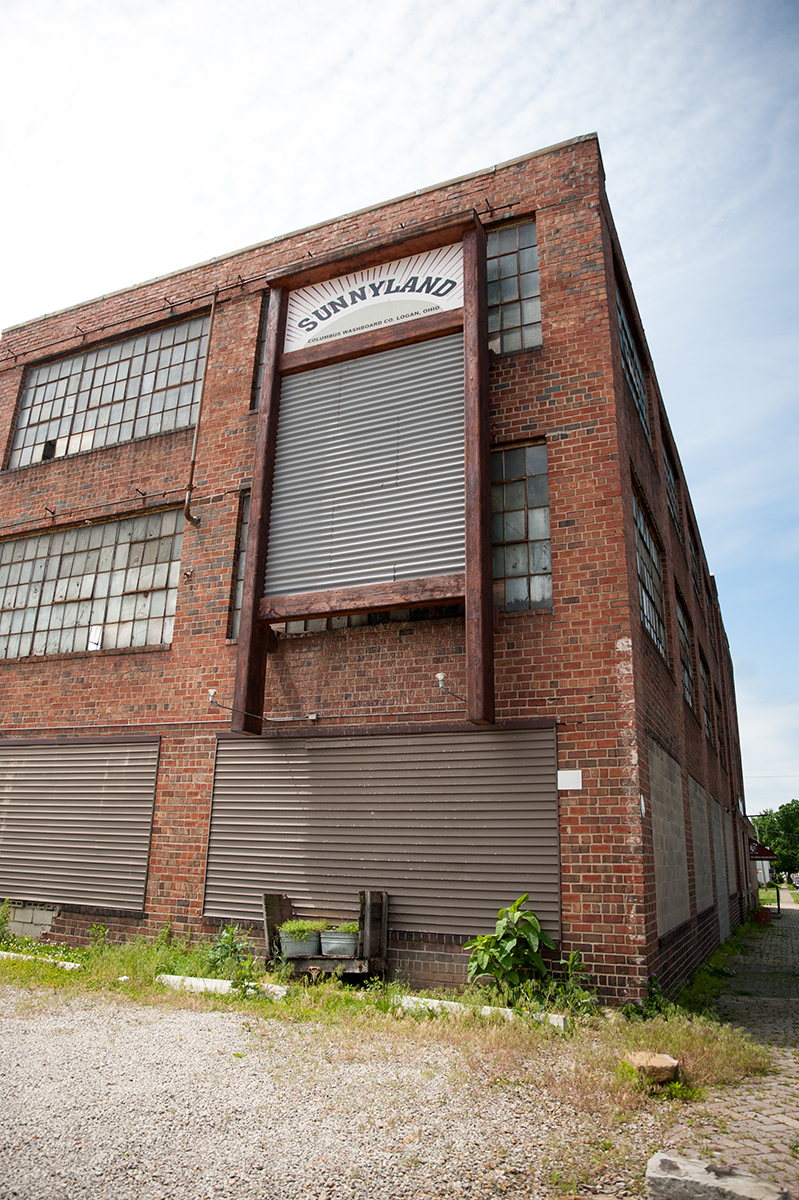
If I can encourage somebody to come in and set up a soda fountain, or a lunch counter, or a five and dime or something, that’s just not common nowadays. That’s what I’m all about, is creating authenticity. If it appeals to locals, then it’s authentic, then you’ve got that authentic Appalachian style. That’s the sort of thing that big city folks appreciate because it is very different. It is more old school. There’s a certain charm that goes with that. And I love it!
We’re riding the crest of a wave. I know that Generation X just completely ignored those downtowns. When you’re getting into Millennials and Gen Z, that was never part of their childhood. They’re intrigued to see this old town. When you actually start creating entertainment opportunities, and you create a reason for people to go there, that is what revitalizes it. That’s where we’re at right now. So I’m excited. We’re resurrecting all of that again. We’re trying to create it to be a walking space and a real cool place for people to go to.
It’s the community that foremost got me thinking that I really wanted to be a part of this.
We have a movie theater which I didn’t even know was there. It’s an old movie theater that was mothballed in 1992 and we’re resurrecting it. We revitalized the second and third floors—the school districts have now taken a long-term lease on the second and third floors. We’re home to the Hocking Hills Children’s Chorus.
With my attention to detail, I’m bringing out the old projectors because they were still there. I found a guy that used to work for RCA back in the day, and he’s taking our projectors apart. We’re going to be the only movie theater in Ohio that will still run 35-millimeter film. If you want to watch the original Back to the Future on 35-millimeter film, sit there and have a really enjoyable evening, it’s not going to be a four or five-buck ticket, it’s going to be at a premium price.
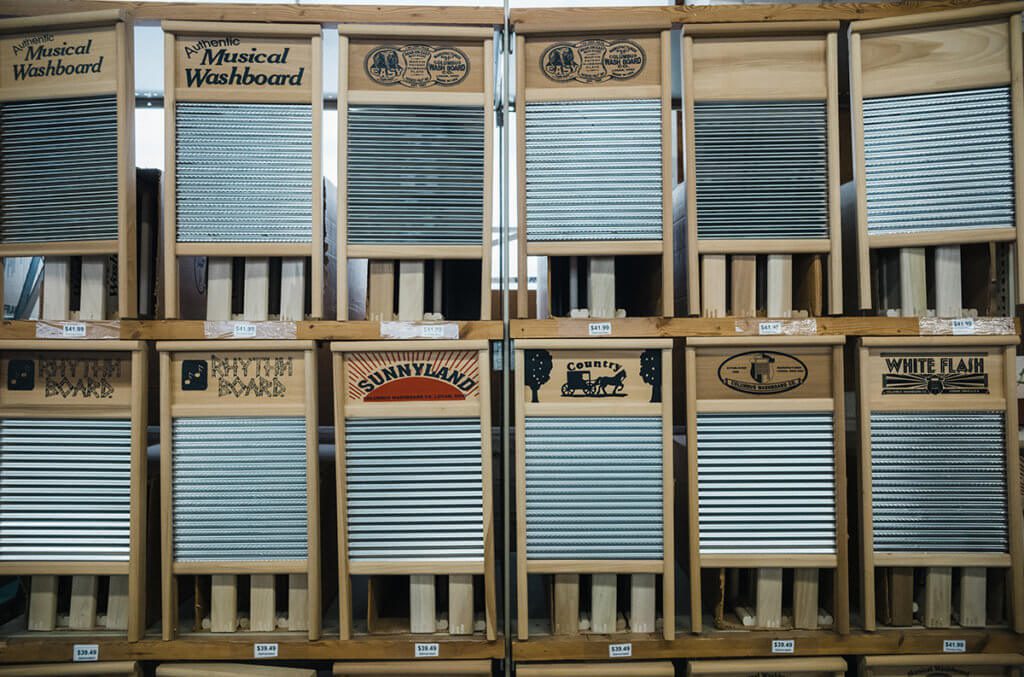
It’s an old vaudeville theater. We’ve got graffiti downstairs in the green rooms going back to the ‘20s and ‘30s. We know that Sammy Davis Jr. played there. The stage had not been used since the 40s because they literally just brought down a big screen. Now we’re going to have it as a movie theater and a production theater as well. These are the sorts of things that are great assets that were there when Logan was first being built.
It’s the community that foremost got me thinking that I really wanted to be a part of this. I feel that it’s so satisfying that I can for myself personally actually give back and help make a difference.”
— James Martin, Columbus Washboard Company
Logan, Ohio
#WeAreOhioSE




